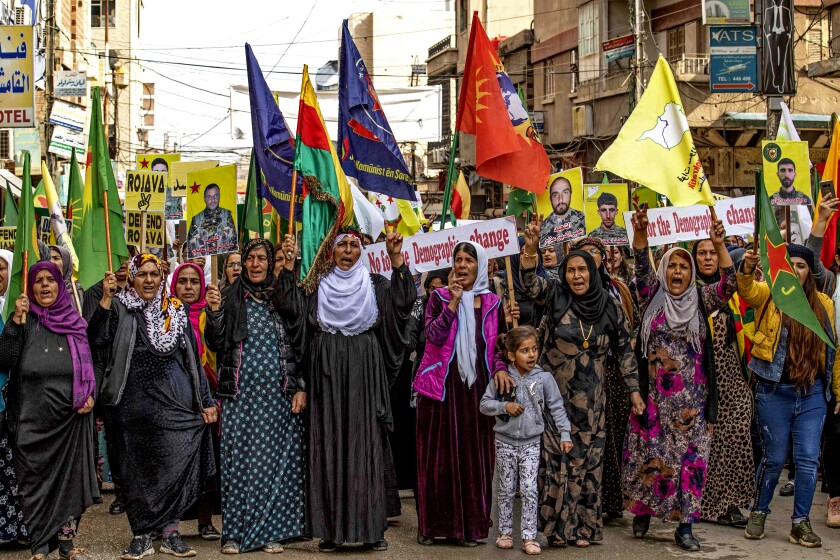by JOHN TULLY

In recent weeks, the autocratic Turkish President Recep Tayyip Erdogan has moved to ban the pro-Kurdish left-wing People’s Democratic Party (HDP) and jailed the 14th member of the party’s 56-strong parliamentary caucus. Erdogan’s attack is the latest iteration of repressive, and at times genocidal, anti-Kurdish policies that go back to the foundation of the Turkish Republic in 1923. The banning of the HDP will mark the transition of Turkey to outright dictatorship.
Not coincidentally, Turkey has also just quit the Istanbul Convention on violence against women — this, as the writer Elif Shafak warns “in a country where three women are killed daily and femicide is a huge crisis.” The HDP’s strong pro-feminism contrasts starkly with Erdogan’s crude misogynism.
HDP MP Mr Omer Faruk Gergerlioglu was stripped of his parliamentary immunity on March 17 and given a one-year prison sentence for a social media post he made five years ago. The party’s imprisoned co-leaders, Leyla Guven and Selahattin Demirtas, are facing decades behind bars—Demirtas up to 132 years.
The indictment against the HDP MPs alleges support for terrorism — a catch-all charge applied at the whim of Erdogan’s ruling party, the Law and Development Party (AKP), to any opponent of his corrupt and repressive government and enforced by his creatures in the judiciary.
Hopes of reform dashed
Earlier hopes that Erdogan was a liberalising reformer have been dashed. Under pressure from the European Union at a time when Turkey wanted EU membership, Erdogan had lifted restrictions on the Kurdish language and in 2013 opened peace negotiations with the Kurdistan Workers’ Party (PKK). Now, he has thrown all of that into reverse; the price of EU membership being too steep.
The HDP ban and withdrawal from the Istanbul Convention cap a wave of terror that began in 2016 when elements of the Turkish military staged an abortive coup, allegedly in concert with followers of Erdogan’s former ally, the exiled cleric Fethullah Gulen. The HDP unequivocally opposed the coup, but this did not save it from Erdogan’s confected wrath.
In effect, the coup was Erdogan’s Reichstag Fire moment, giving him the pretext to repress his real and imagined enemies, particularly the Kurds, despite the HDP’s unequivocal opposition to the conspirators. There have been vast purges of the civil service, schools and universities, and Islamist functionaries have replaced secular officials and academics. Simultaneously, there has been an enormous increase in government funding for religious education — 68% in 2018 alone — as Erdogan seeks to overturn the original secular character of the Republic and usher in clerical fascism.
The repression has raged most fiercely in the majority Kurdish districts of southeast Anatolia, centered on the city of Diyarbakir. The military and police have attacked Kurdish towns and villages, including with artillery and jet fighters.
LINKS for more